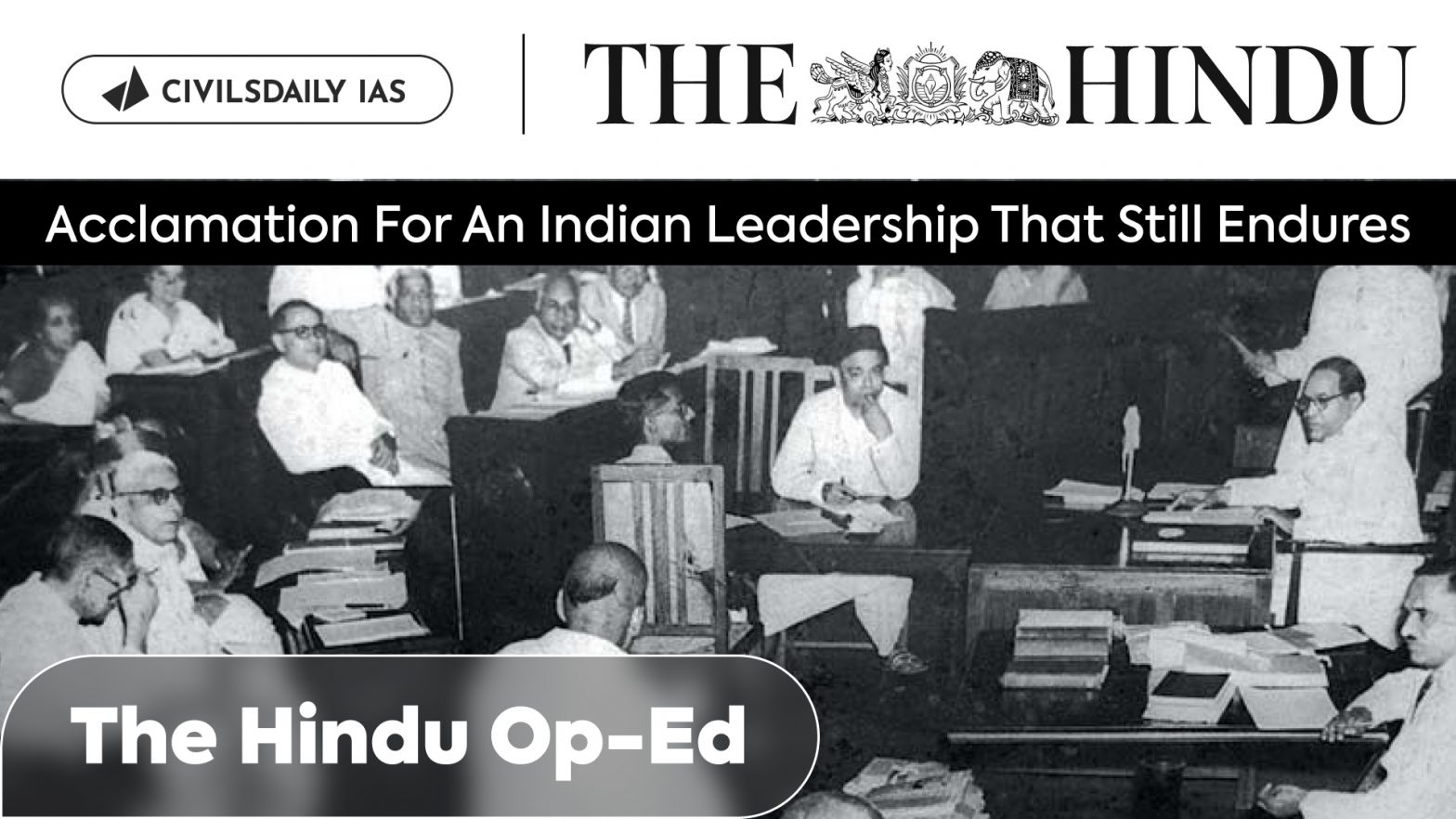| PYQ Relevance: Q) Do you think BIMSTEC is a parallel organisation like the SAARC? Waht are the similarities and dissimilarities between the two? How are Indian foreign policy objectives realized by forming this new organisation? (UPSC CSE 2022) Q) The Indian Diaspora has an important role to play in the South-East Asian country’s economy and society. Appraise the role of Indian Diaspora in South- East Asia in this context (UPSC CSE 2017) Q) What problems were pertinent to the decolonization in the Malay Peninsula? (UPSC CSE 2017) |
Mentor’s Comment: Malaysian PM Anwar Ibrahim’s recent visit to India highlighted the enduring legacy of Jawaharlal Nehru and India’s leadership role in shaping the Global South agenda. He praised India’s G20 Chairmanship and Voice of Global South Summits, emphasizing the importance of Nehru’s vision for a just and prosperous nation. Despite domestic criticism, Nehru’s reputation remains intact globally. Anwar’s references to historical Indian figures reflect shared cultural heritage and intellectual ties. The visit aimed to strengthen India-Malaysia relations and promote cooperation on global issues while acknowledging complexities surrounding minority rights and regional conflicts.
_
Let’s learn!
Why in the News?
Malaysian PM Anwar Ibrahim during his visit to India (August 19-21, 2024), praised India’s role in shaping the Global South agenda, highlighting its capacity for cooperation with the Global North and commending India’s G20 Chairmanship.
| Enduring Legacy of Nehru • Struggle against Imperialism: Nehru was deeply concerned with the fight against European colonial powers, particularly in Asia. He believed newly independent nations should unite to resist imperialism and promote their sovereignty. • Asian Relations Conference: In 1947, Nehru organized the Asian Relations Conference in New Delhi, which aimed to foster solidarity among Asian countries and chart a collective path forward in the post-colonial era. • Non-Alignment Movement: Nehru championed the concept of non-alignment, advocating that newly independent states should not align with either the USA or the USSR during the Cold War. This approach allowed these nations to maintain their sovereignty and avoid being drawn into great power conflicts. • Bandung Conference: Nehru played a crucial role in this conference, where leaders from Asian and African nations gathered to promote economic and cultural cooperation while opposing colonialism. This conference laid the groundwork for the Non-Aligned Movement (NAM), which sought to protect the interests of developing nations. |
Historical overview of India-Malaysia Relations since Nehru:
- Early Ties and Independence: India and Malaysia share historical ties dating back over a millennium, influenced by trade and cultural exchanges established during the Chola Empire (9th-13th centuries).
- India established diplomatic relations with the Federation of Malaya in 1957, coinciding with Malaysia’s independence.
- Strengthening Bonds in the 1960s: The relationship flourished in the 1960s due to the personal rapport between Indian PM J. Nehru and Malaysian PM T. Rahman. This era marked a significant phase of political, economic, and socio-cultural cooperation.
- Enhanced Strategic Partnership: In 2015, during Prime Minister Narendra Modi’s visit, India-Malaysia relations were elevated to an Enhanced Strategic Partnership, reflecting a commitment to deepen cooperation across various sectors.
- High-Level Visits: Numerous high-level visits have nurtured ties, including visits by Indian Prime Ministers such as Indira Gandhi and Manmohan Singh, and Malaysian leaders like Mahathir Mohamad and Najib Razak.
| Areas of Cooperation: • Geopolitical Cooperation: Both countries are members of key international forums like the Commonwealth, NAM, and ASEAN, facilitating mutual cooperation on global issues. • Defense Ties: Since signing a defense cooperation memorandum in 1993, India and Malaysia have expanded military collaboration through joint exercises and training programs. • Economic Relations: Bilateral trade reached approximately USD 19.5 billion, with Malaysia being India’s 13th largest trading partner. Both nations engage in significant investment activities across various sectors. • Cultural and Diaspora Links: Malaysia hosts a large Indian diaspora (over 2.95 million), fostering cultural ties through institutions like the Indian Cultural Centre in Kuala Lumpur. |
Challenges and Complexities:
- Political Dynamics: The relationship has faced challenges due to domestic political sentiments in Malaysia, particularly during Mahathir Mohamad’s tenure when he had to balance his Indian heritage with Malay nationalism.
- Controversies: Issues such as the treatment of Indian expatriates in Malaysia have occasionally strained relations, but diplomatic efforts have often resolved these tensions.
Conclusion: India-Malaysia relations since post-independence, despite facing challenges, the bilateral relationship remains robust, characterized by ongoing cooperation in various sectors and mutual respect for each nation’s sovereignty and cultural diversity

